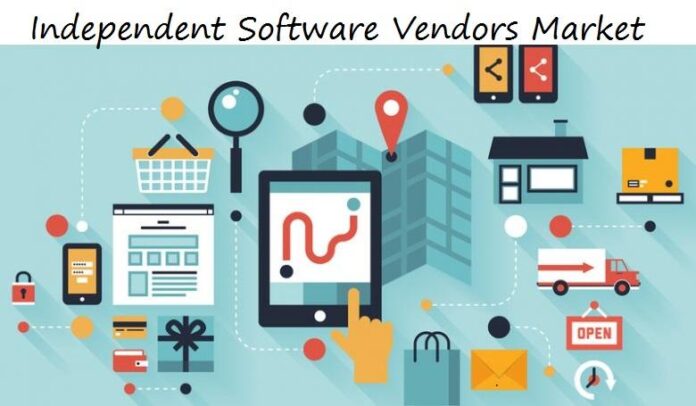Choosing the right software for your business can be a daunting task. With so many options available, it’s important to take the time to carefully consider your needs and budget before making a decision. In this article, we’ll walk you through the steps you should take to choose the right software for your business.
Step 1: Identify Your Needs

Before you start considering specific software options, it’s important to identify what you need the software to do for your business. This will help narrow down your options and ensure that you’re choosing a solution that meets your needs.
To identify your needs, start by considering the following questions:
- What specific tasks or processes do you need the software to support?
- How will the software be used in your business?
- How many users will need access to the software?
- Do you have any specific hardware or system requirements?
- What is your budget for the software?
Step 2: Research Your Options
Now that you have a clear idea of what you need the software to do, it’s time to start researching your options. There are a few key sources you can use to find software recommendations and reviews:
- Online Reviews – Look for reviews of software on websites like Capterra or G2 Crowd, which allow users to rate and review different software options.
- Industry-Specific Websites & Forums – Many industries have their own websites and forums where professionals discuss and recommend software solutions.
- Your Network – Talk to other business owners or professionals in your industry and ask for their recommendations.
Step 3: Evaluate The Features & Benefits

Once you’ve compiled a list of potential software options, it’s time to start evaluating the features and benefits of each option. This will help you narrow down your choices and determine which software is the best fit for your business.
When evaluating software, consider the following factors:
- Cost – How much does the software cost, and does it fit within your budget?
- Ease Of Use – Is the software easy to use, or will it require extensive training for your team?
- Integration – Can the software integrate with other tools and systems you use in your business?
- Scalability – Can the software grow with your business, or will you need to switch to a different solution as your business expands?
Step 4: Consider The Support & Maintenance
In addition to the features and benefits of the software, it’s also important to consider the support and maintenance options that are available.
- Support – Does the software provider offer customer support, and is it available 24/7?
- Maintenance – Is the software regularly updated with new features and security patches, or will you need to purchase separate maintenance packages?
Step 5: Test the Software

Before making your final software decision, it’s important to test out the software in a real-world setting to ensure it performs as expected. One way to do this is to take advantage of free trials or demos offered by software providers.
These trials or demos allow you to test out the software and see how it functions in your business environment before making a commitment to purchase. It’s a good idea to take advantage of these opportunities to ensure the software meets your needs and functions as expected.
This can help prevent potential issues or disappointments down the line and give you greater confidence in your final decision.
Step 6: Make a Decision
Once you’ve thoroughly evaluated all of your options and tested the software, it’s time to make a decision. Consider all of the factors you’ve analyzed, including cost, features, benefits, support, and maintenance, to determine which software is the best fit for your business.
Choosing the best software for your business is a critical decision that requires careful consideration and research. By following the steps outlined in this article, you can be confident that you’re making an informed choice that will meet your business needs and help your company thrive.
Where To Get Good Software

In most cases, you will get your software from a vendor. Software vendors are companies that produce and sell software products. These products can be designed for a wide range of purposes, including business operations, entertainment, and personal use.
Software vendors may offer a variety of delivery models, including one-time purchases, subscriptions, and cloud-based services.
When choosing a software vendor, it’s important to consider factors such as the vendor’s reputation, the features and capabilities of their products, and the level of support and maintenance they offer. It’s also a good idea to compare prices and review any available demos or free trials to ensure the software meets your needs and budget.
It’s important to choose a reputable vendor to ensure you are getting a high-quality product that meets your needs. Careful research and consideration can help you make an informed decision and choose the best software vendor for your business or personal use.
Examples Of Reputable Software Vendors

Here are some examples of software vendors and some information about each one:
- Microsoft is a large software vendor that produces a wide range of products, including operating systems, productivity software, and business solutions. They are known for their user-friendly interface and strong support and maintenance options.
- Adobe specializes in creative and design tools, such as Photoshop and Illustrator. They are widely used by professionals in the creative industries and offer a variety of subscription plans.
- Oracle is a software vendor that produces a range of products for businesses, including databases, enterprise resource planning (ERP) solutions, and cloud-based tools. They are known for their advanced technology and strong focus on security.
- Salesforce offers customer relationship management (CRM) solutions for businesses. Their products are widely used in the sales and marketing industries and are known for their strong integration capabilities.
- Intuit produces financial management tools, such as QuickBooks and TurboTax. They are known for their user-friendly interface and range of products for small businesses.
- SAP produces a range of business solutions, including enterprise resource planning (ERP) software, customer relationship management (CRM) tools, and supply chain management solutions. They are known for their advanced technology and strong focus on data analytics and business intelligence.









